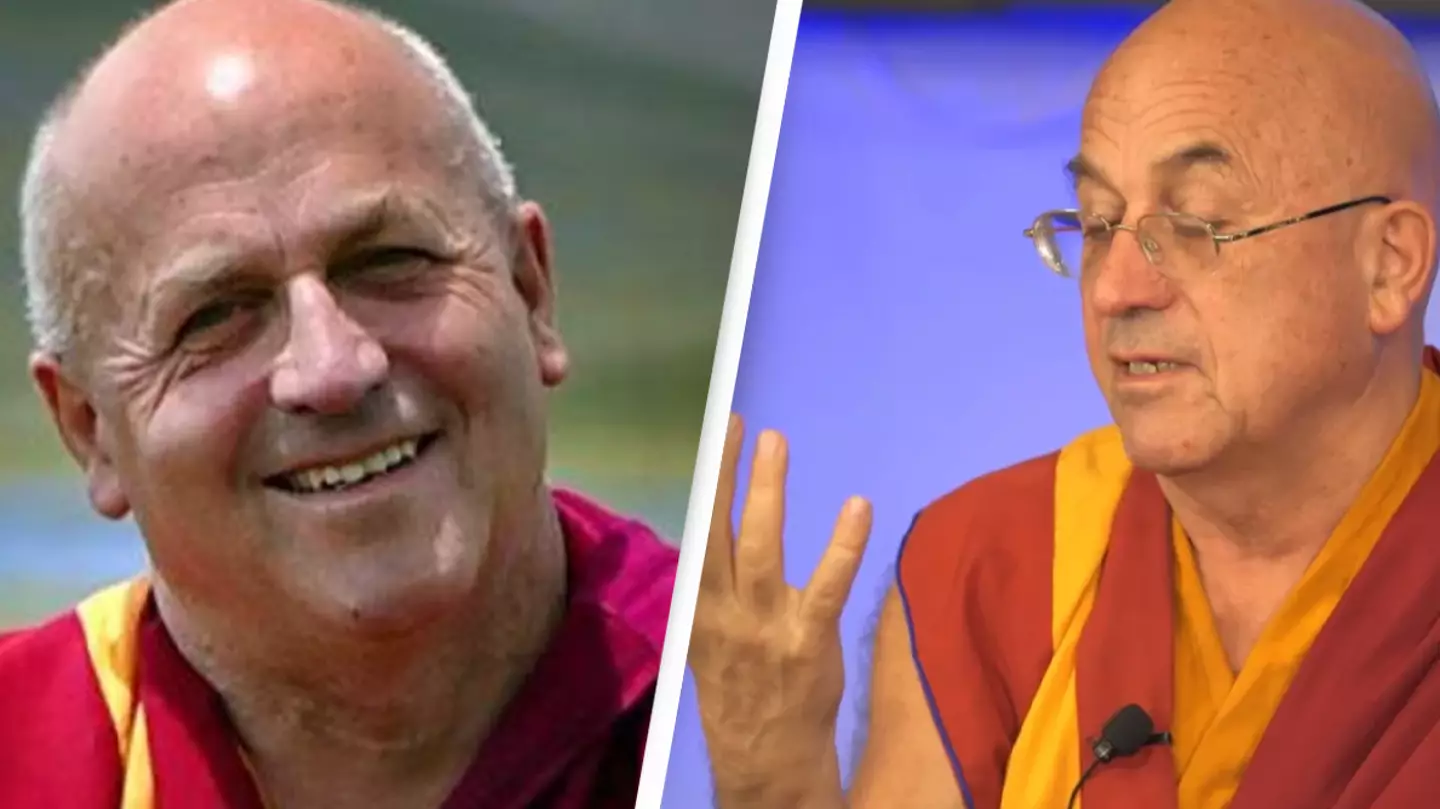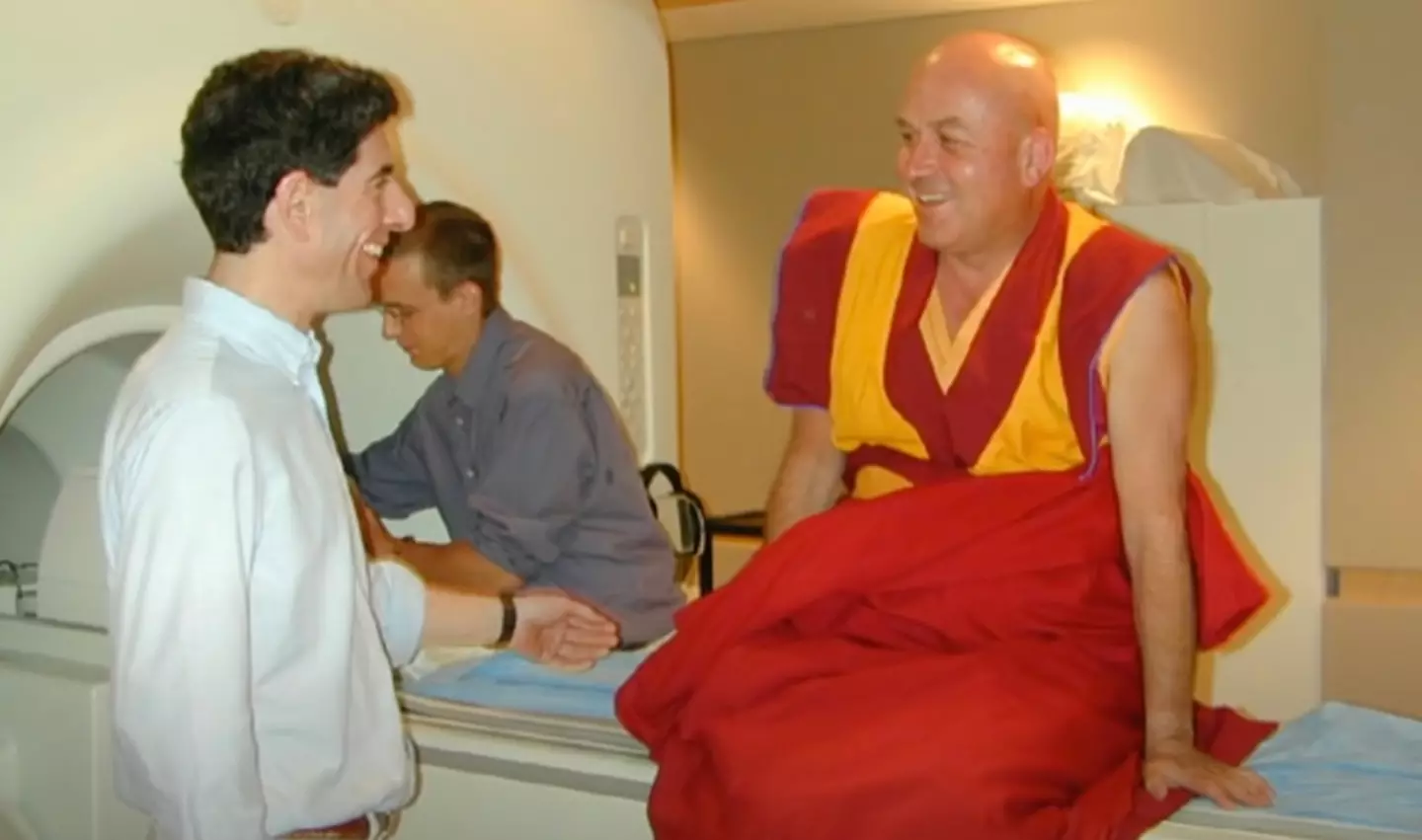
A Buddhist monk who was found to be the ‘happiest person alive’ has shared his secret to a happy life.
The key to happiness is pretty much the most sought after thing on this planet. Some believe love is the answer, while others reckon jumping off buildings or owning a Tesla are the way forward.
But anyone who's achieved their goals in life, only to realise they're still not content, will be well aware that those good feelings have to come from within.
Ironically, it happens when you stop looking for it.
Advert
Just ask Matthieu Ricard, a French former scientist who went from earning a PhD in molecular genetics to dropping his life and moving to the Himalayas to become a Buddhist monk.
The 76-year-old, who spends hours upon hours meditating, earned himself the title of 'happiest person alive' after a fun little experiment by the University of Wisconsin.
Neuroscientists hooked the monk’s skull up to 256 sensors, and from this they discovered that while meditating, Ricard's brain produced gamma waves linked to consciousness, attention, learning and memory at levels never reported before.
What's more, the scans showed incredibly high activity in his brain's left prefrontal cortex compared to the right one, meaning he has an abnormally heightened capacity for happiness and the opposite for negativity.
In short, he knows a thing or two about the secret to a happy life – and with his practices in mind, he's more than willing to share his wisdom with the rest of humankind.

Speaking to Business Insider at the World Economic Forum in Switzerland several years back, he highlighted how important it is to stop thinking in a selfish way.
He said: "It's not the moral ground. It's simply that me, me, me all day long is very stuffy.
"And it's quite miserable, because you instrumentalise the whole world as a threat, or as a potential sort of interest [to yourself]."
If you want to be happy, Ricard suggests striving for 'benevolence'.
"If your mind is filled with benevolence, you know, the passion and solidarity... this is a very healthy state of mind that is conducive to flourishing," he continued.
"So you, yourself, are in a much better mental state. Your body will be healthier, so [it] has been shown. And also, people will perceive it as something nice."
Of course, in society – especially in the western world – people have been hardwired to follow a life of individualism.
Our minds are often working at a hundred miles a minute and looking out for the negatives, but that's not to say we can't change things with a little time and effort.
Ricard went on to say: "With mental training, we can always bring [our level of happiness] to a different level.
"It's like running. If I train, I might run a marathon. I might not become an Olympic champion, but there is a huge difference between training and not training. So why should that not apply to the mind?
"There is [a] view that benevolence, attention, emotional balance and resilience are skills that can be trained."

It might sound overwhelming, but the happy man himself has demonstrated how people can achieve this using a simple technique – provided they don't have serious mental illness, in which case it's always important to seek professional help.
He suggests spending 10 to 15 minutes a day thinking happy thoughts – and no, we don't mean getting revenge on your enemies.
Try to think about doing something nice for others, or even just remembering a joyful time from your past will suffice.
Spending more than a few seconds on these positive emotions will provide mental benefits in the long run, and can even deliver results in a matter of two weeks.
And if you continue this practice for a sustained period of time, well, we've seen what happened with Ricard. He didn't become the world's happiest man overnight.
Topics: Life, Mental Health, Health